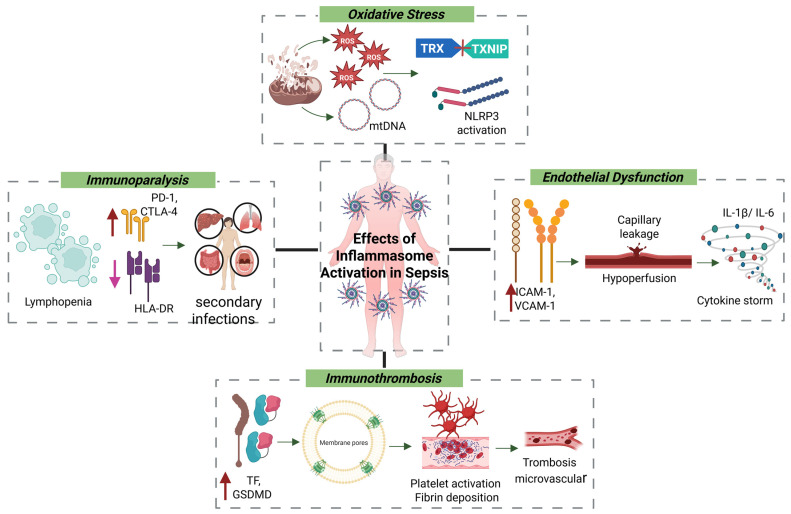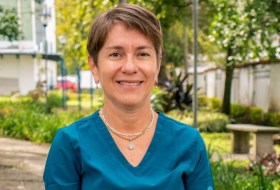News
The invisible battle: Unicaucana helps to understand how the immune system acts in severe infections
Professor María Virginia Pinzón Fernández, from the Health Research Group (GIS) at the University of Cauca, is part of an international article that provides new insights into understanding sepsis, a disease that claims millions of lives worldwide each year.
What happens when our immune system, our primary defender, turns against us during a severe infection? The answer, often fatal, lies in the complexity of sepsis: an extreme bodily response to infection that puts lives at risk. To help advance knowledge on this critical issue, Professor María Virginia Pinzón Fernández, together with a team of national and international researchers, published a high-level scientific review article in the journal Cells. The paper, titled “Inflammasomes and Signaling Pathways: Key Mechanisms in the Pathophysiology of Sepsis” (Cells. 2025 Jun 19;14(12):930), examines how specific immune system mechanisms, known as inflammasomes, act when the body mounts an exaggerated response to infection.
Although the article does not present new experimental data, its value lies in offering a robust and updated conceptual framework that can guide medical practice. It compiles and explains the most recent knowledge on the subject in a clear and accessible way. As Professor Pinzón explains: “Our goal is to build bridges between basic science and clinical practice, and to provide useful conceptual frameworks to improve critical patient care.” She also highlights the potential positive impact this work could have on medical practice. The article is available on PubMed and through the Cells journal platform http://(link: https://pubmed.ncbi.nlm.nih.gov/40558557/) and is expected to become an essential reference for both researchers and clinicians.

Provided photo
It is worth noting that Professor María Virginia Pinzón Fernández is a bacteriologist trained at the Pontificia Universidad Javeriana, with a specialization in Multicultural Education from the University of Cauca, and over 35 years of experience in university teaching. For more than two decades, she has served as a tenured professor in the Medicine program at the University of Cauca, where she teaches microbiology, parasitology, and research methodology. She also leads the Health Research Group (GIS), focused on infectious and metabolic diseases as well as key public health issues. In addition, she has directed the PREVENIR group and has taught at other institutions such as Unicomfacauca.
At the University of Cauca, we proudly celebrate this contribution, which strengthens our researchers’ commitment to public health and science in service of life. Publications like this not only raise the profile of our institution at both the national and international levels, but also demonstrate how knowledge can save lives when placed at the service of those who need it most.
Written by: Communications Management Center


